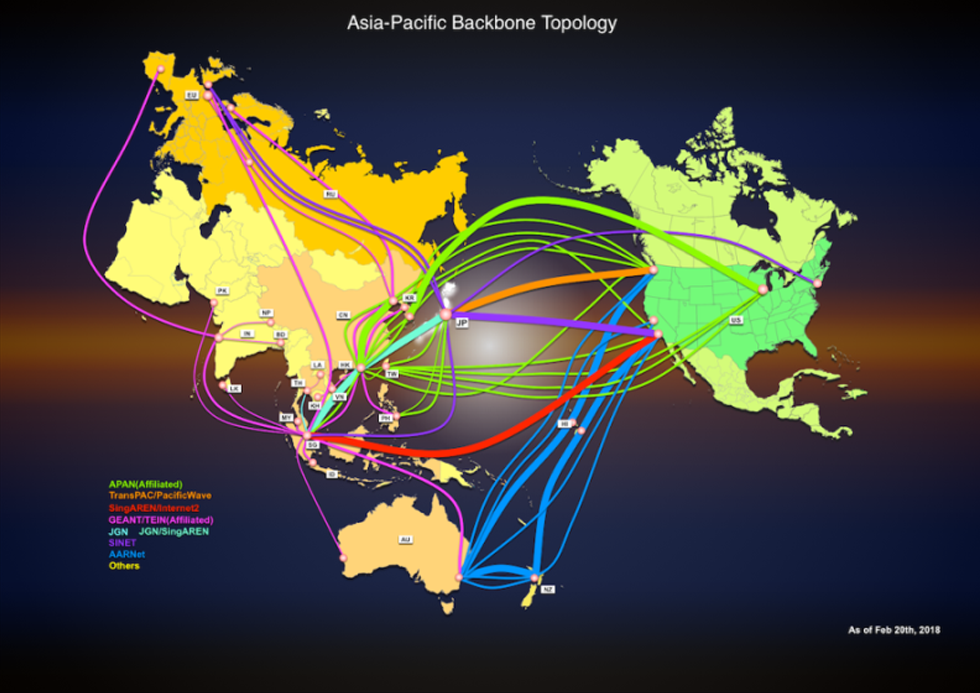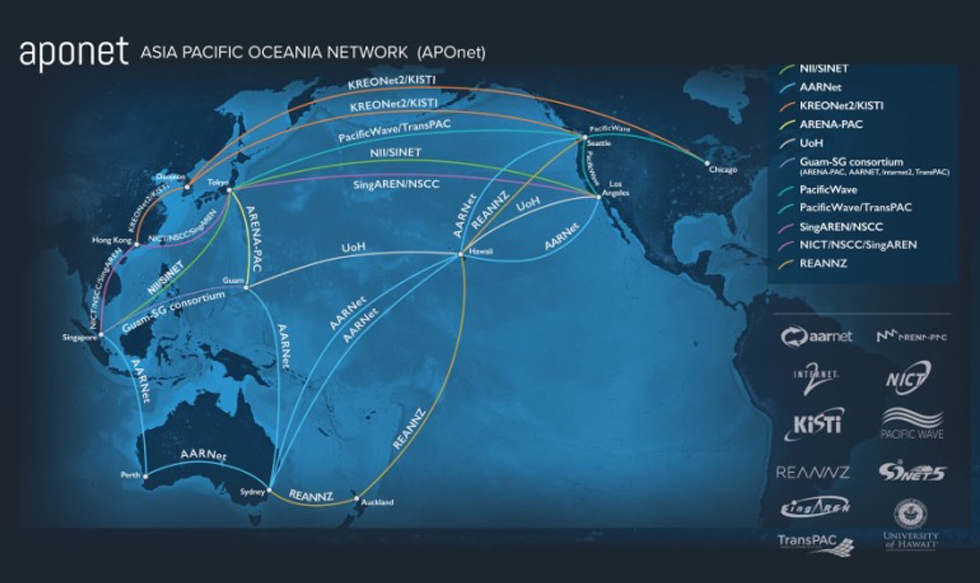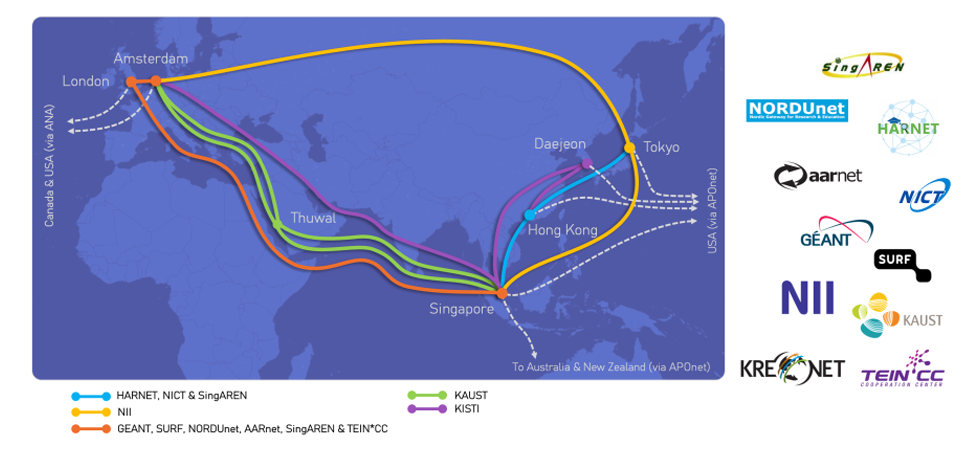GNA-G (Global Network Advancement Group)
GNA-G is the largest global consortium for international collaboration between national research and education networks. It was formed in the 2010s through the merger of two major international research network communities: GLIF (Global Lambda Grid Integrated Facility) and GNA (Global Networks Advancement).
The group, led by the GNA-G Leadership Team, coordinates efforts across various working groups (WGs) to achieve the following:
- Interconnecting global research and education networks (GREN) across continents.
- Developing advanced networking technologies.
- Facilitating global research collaborations.
- Shaping the future blueprint of research networks.
KISTI’s Role
KISTI has been primarily involved in GLIF (Global LambdaGrid Integrated Facility) through the GLORIAD project. Following the integration into GNA-G (Global Network Advancement Group) in 2019, KISTI continues its active participation. Buseung Cho has been a member of the GNA-G Leadership Team since 2019 and has served as the co-chair of the AutoGOLE/SENSE Working Group since 2020, contributing to key advancements in automated and intelligent networking technologies.
Asia-Pacific Advanced Network (APAN)
The Asia-Pacific Advanced Network (APAN) is a consortium of advanced research networks, primarily focused on national research and education networks in the Asia-Pacific region. It facilitates the introduction and sharing of various network-based technologies and applications. The Korean representative organizations for APAN are APAN-KR, with KISTI/KREONET and NIA/KOREN participating as institutional members. Universities, along with academia and industry in Korea, play a leading role in APAN activities.
APAN holds APAN Meetings twice a year, covering various technical areas such as Cloud, IPv6, AI-Driven Networks, Security, Routing, and Asia-Pacific Research Platform (APRP). In addition, it hosts working group (WG) meetings on application fields such as Agriculture, Identity & Access Management, e-Culture, Disaster Mitigation, Medical, and Open & Sharing Data. APAN Board of Directors (Buseung Cho, 2023~), APAN-KR Chairman (Buseung Cho, 2023~), APAN APRP WG Chair (Jeonghoon Moon), etc
APONET (Asia Pacific Oceania Network)
APONET (Asia Pacific Oceania Network) is a consortium of 12 global advanced research and education networks from North America, East Asia, Southeast Asia, and Oceania, focused on providing high-performance research network services in the Pacific and Oceania regions under the theme “Science · Research · Data · Collaboration.” The APONET official website offers services in English, Japanese, and Korean.
KISTI/KREONET has been an early member since APONET’s formation in 2021 and actively participates in meetings such as the APONET Engineering Meeting and the APONET Leader Group Meeting.
AER (Asia-Europe Ring)
AER (Asia-Europe Ring) is an international research network consortium that facilitates high-availability and high-performance intercontinental research network services between Asia, Oceania, and Europe. The primary goals of AER include establishing multilateral high-availability network interconnections, providing mutual backup support, and collaborating on efficient data transmission and the development of advanced engineering technologies and applications.
KISTI/KREONET joined the AER consortium during the 55th APAN event in 2023, held in Nepal, following the activation of the 100 Gbps international research network link between Singapore and Amsterdam. KISTI/KREONET is actively involved in the AER Steering Committee and the AER Engineering Committee.
EARBN (East Asia Resilient Backbone Network Collaboration)
EARBN (East Asia Resilient Backbone Network Collaboration) is a collaboration formed in August 2023 among the national research networks of four countries: South Korea, China, Japan, and Singapore. Its main objective is to maximize the availability of East Asia’s international research networks. EARBN aims to secure multiple interconnections between participating research networks to effectively support global large-scale scientific collaboration, provide stable international research network services through mutual backup arrangements, and promote advanced network engineering and cooperation through international exchanges.
As the South Korean partner of EARBN, KISTI/KREONET is actively working on establishing backup routes for the Daejeon-Hong Kong and Daejeon-Singapore 100 Gbps networks to ensure stable network operations in collaboration with other research networks.



